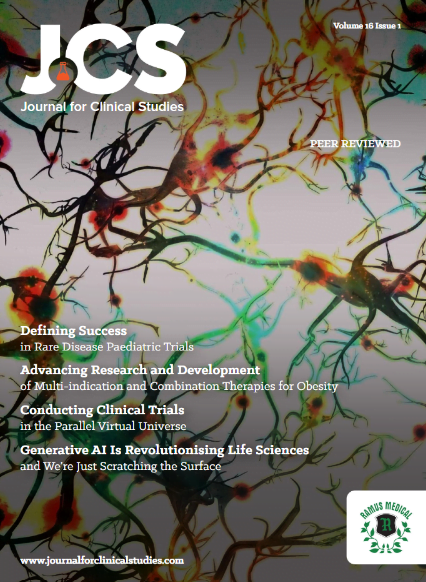After two FDA rejections against China-made cancer immunotherapies this year, another Chinese pharma hopes it has the data to crack the agency’s doors open. But one major uncertainty remains.
Thursday, Jiangsu Hengrui Medicine said a global phase 3 trial of its PD-1 inhibitor camrelizumab and VEGFR inhibitor apatinib, also known as rivoceranib, has hit its goals in newly diagnosed patients of liver cancer. The combination topped Bayer’s Nexavar at extending patients’ lives and preventing disease progression or death, Hengrui said in a filing to the Shanghai Stock Exchange.
Based on the findings, Hengrui said it plans to start a conversation soon with the FDA for a potential new drug application. It has already filed with China’s National Medical Products Administration.
Camrelizumab is sold in China under the brand name AiRuiKa across eight indications in multiple tumor types, and apatinib has been approved in the country for the treatment of stomach cancer and second-line liver cancer with the brand name Aitan. U.S. company Elevar Therapeutics, formerly known as LSK BioPharma, holds ex-China rights to apatinib.
If approved, the Hengrui cocktail will need to compete with Roche’s PD-L1/VEGF combo of Tecentriq and Avastin, which got its FDA go-ahead in first-line liver cancer in 2020.
In addition, AstraZeneca’s PD-L1/CTLA-4 pairing of Imfinzi and tremelimumab is under FDA priority review in the same indication, with a decision expected in the fourth quarter. What’s more important, Merck & Co.’s formidable PD-1 king Keytruda is nearing a phase 3 readout for a combination with Eisai-partnered Lenvima later this year.
As industry watchers have expected from China-made PD-1 or PD-L1 inhibitors, Hengrui could compete with lower pricing. In China, Hengrui cut AiRuiKa’s price to 2,928 Chinese yuan ($432) for a 200mg bottle to win national coverage, making its annual cost about 50,000 yuan ($7,370). Existing PD-1 inhibitors in the U.S. all carry yearly list prices around $150,000.
Hengrui represents the latest example of a Chinese drugmaker trying to bring a PD-1/L1 inhibitor to the U.S. market.
The first attempt by a Chinese firm, Innovent Biologics, and its partner, Eli Lilly, hit a wall in February for their Tyvyt, or sintilimab, in non-small cell lung cancer. In that closely watched decision, the FDA lambasted the companies for using a pivotal trial conducted only in China and for comparing the experimental therapy against an outdated standard of care.
Hengrui’s camrelizumab-apatinib combo doesn’t seem to have either problem. The phase 3 trial, coded SHR-1210-III-310, was conducted in 121 trial sites including several in the U.S., Belgium, Italy, Spain and other countries, according to clinicaltrials.gov. In its Thursday’s filing, Hengrui said the trial involves 95 treatment centers in 13 countries and territories. As for the trial’s comparator arm, Nexavar was indeed the standard of care until Tecentriq came along but Hengrui’s clinical study started a year before Tecentriq’s first-in-class nod.
But the Hengrui regimen has one complication. Neither camrelizumab nor apatinib is approved in the U.S. Therefore, it could be argued that there’s no telling of each drug’s contribution to the regimen. It’d be difficult to ask for a combo therapy that’s basically two new drug applications.
But in Hengrui’s 2021 annual report published three weeks ago, the company said it has completed multiple rounds of conversation with the FDA and that it has started the preparation work for the U.S. applications of the two drugs, hopefully to file this year. Both camrelizumab and apatinib bear FDA orphan drug designations in liver cancer.
In addition to Hengrui and Innovent, Chinese biotech Junshi Biosciences and U.S. partner Coherus BioSciences recently received an FDA complete response letter for their PD-1 inhibitor toripalimab in nasopharyngeal carcinoma. The agency is asking for a process change that the companies said is “readily addressable.”
BeiGene and Novartis also await an FDA decision for tislezliumab in esophageal squamous cell carcinoma by July 12.
Meanwhile, the pricing pressure in China is weighing on Hengrui and other PD-1/L1 developers. Thanks to its national reimbursement status and multiple indication expansions, camrelizumab’s volume more than tripled in 2021 to 1.41 million bottles. However, Hengrui said the drug’s sales actually dropped last year, without giving the specific numbers. Hengrui’s 2021 total haul dropped 6.6% year-over-year to 25.9 billion yuan. The company also slashed 23% of its sales force to about 13,200 people in 2021 to lower costs.
Ahead of camrelizumab’s U.S. filing, Hengrui recently poached Scott Filosi, formerly U.S. commercial head for Merck KGaA’s EMD Serono, as the CEO of its U.S. and European operations. It also hired Bristol Myers Squibb’s former senior vice president of global medical affairs to serve as the chief medical officer of the U.S. and EU business.















